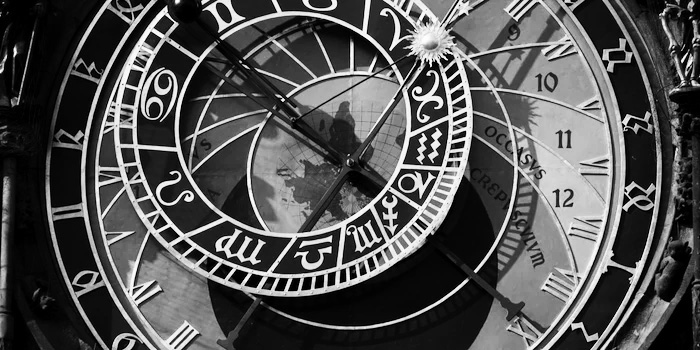Society
Time as Linear for Abrahamic Religions
In general, the Islamic and Judeo-Christian world-view regards time as linear and directional, beginning with the act of creation by God. The traditional Christian view sees time ending, teleologically, with the eschatological end of the present order of things, the "end time". In the Old Testament book Ecclesiastes, traditionally ascribed to Solomon (970–928 BC), time (as the Hebrew word עידן, זמן iddan (age, as in "Ice age") zĕman(time) is often translated) was traditionally regarded as a medium for the passage of predestined events. (Another word, زمان" זמן" zamān, meant time fit for an event, and is used as the modern Arabic, Persian, and Hebrew equivalent to the English word "time".)
Time in Greek Mythology
The Greek language denotes two distinct principles, Chronos and Kairos. The former refers to numeric, or chronological, time. The latter, literally "the right or opportune moment", relates specifically to metaphysical or Divine time. In theology, Kairos is qualitative, as opposed to quantitative. In Greek mythology, Chronos (ancient Greek: Χρόνος) is identified as the Personification of Time. His name in Greek means "time" and is alternatively spelled Chronus (Latin spelling) or Khronos. Chronos is usually portrayed as an old, wise man with a long, gray beard, such as "Father Time". Some English words whose etymological root is khronos/chronos include chronology, chronometer, chronic, anachronism, synchronize, and chronicle.
Time In Western Philosophy

In Philosophy, time was questioned throughout the centuries; what time is and if it is real or not. Ancient Greek philosophers asked if time was linear or cyclical and if time was endless or finite. These philosophers had different ways of explaining time; for instance, ancient Indian philosophers had something called the Wheel of Time. It is believed that there was repeating ages over the lifespan of the universe. This led to beliefs like cycles of rebirth and reincarnation. The Greek philosophers believe that the universe was infinite, and was an illusion to humans. Plato believed that time was made by the Creator at the same instant as the heavens. He also says that time is a period of motion of the heavenly bodies. Aristotle believed that time correlated to movement, that time did not exist on its own but was relative to motion of objects. He also believed that time was related to the motion of celestial bodies; the reason that humans can tell time was because of orbital periods and therefore there was a duration on time.